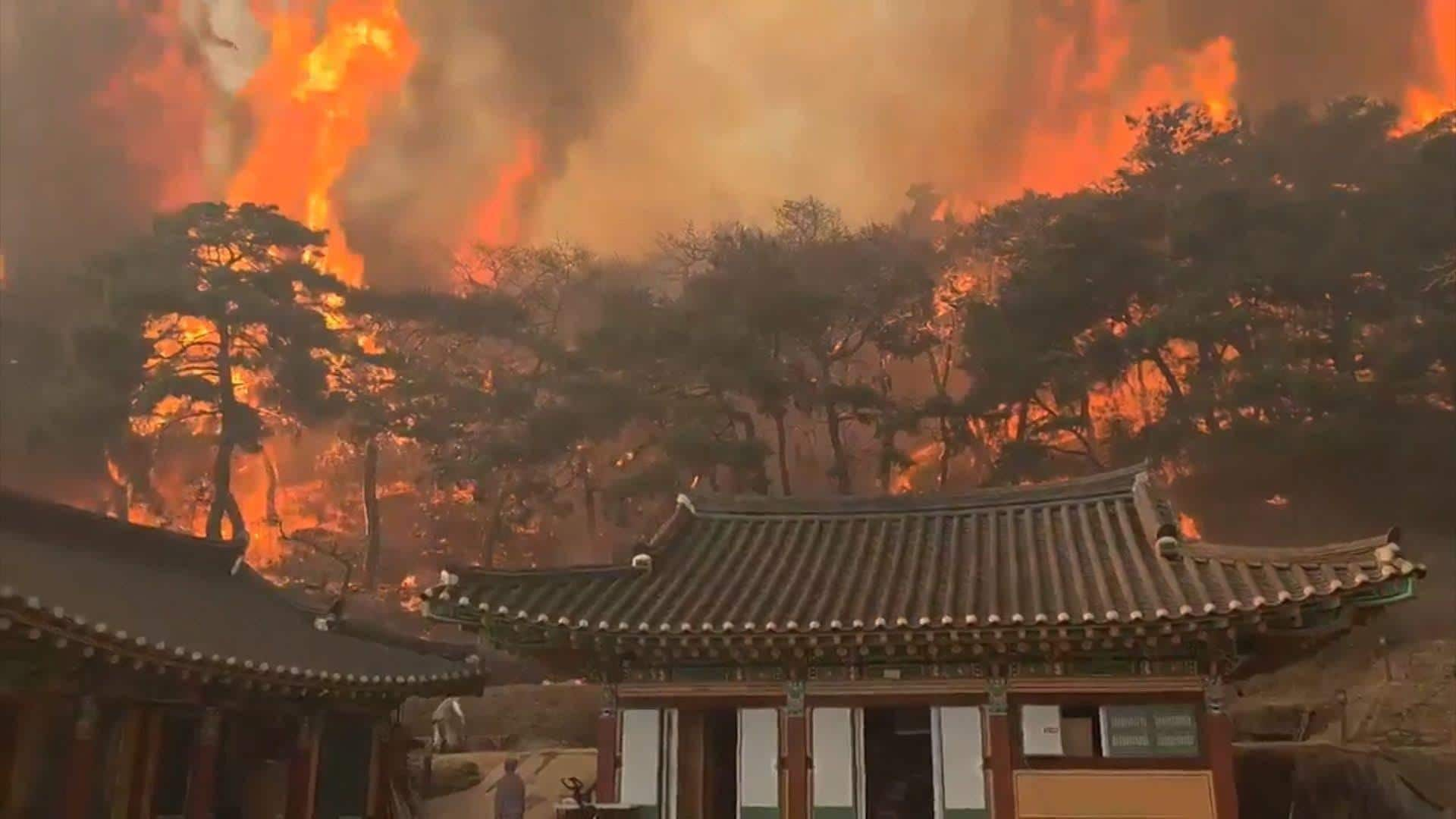
South Korean police believe they know what started 'worst-ever' wildfires
What's the story
A middle-aged man tending to a family grave on a hillside in Uiseong County, North Gyeongsang province, is suspected of starting one of South Korea's worst wildfires, according to the National Police Agency. The fires have killed 30 people and destroyed thousands of structures, including much of Gounsa Temple, which was built in 681. The incident happened on March 22 in windy weather, as he was looking after the gravesite.
Ongoing investigations
Investigations into wildfires continue
The suspect's daughter allegedly told investigators that her father had attempted to burn tree branches that were hanging over the graves using a cigarette lighter. She said the flames were "carried by the wind and ended up sparking a wildfire." Investigators plan to summon him for questioning after on-site inspections, which might take over a month.
Unprecedented destruction
South Korea's worst wildfires in history
The wildfires, termed the worst ever in South Korea's history, have engulfed around 48,000 hectares of land. The Korea Forest Service confirmed that the fires had been put out by Monday. Over 3,100 people were evacuated to 114 shelters due to the fires, and five areas were declared special disaster zones. The Defense Ministry reported that around 7,500 ground troops and over 420 choppers, including some from US Forces Korea, were deployed to help combat the wildfire.
Experts
Uiseong fire had an exceptionally unusual spread
According to experts, the Uiseong fire had an exceptionally unusual spread in terms of scale and speed, and that climate change is anticipated to make wildfires more regular and destructive globally. A report by the Climate Central group said higher temperatures, exacerbated by human-caused climate change, contributed to the region's existing seasonally dry conditions, "turning dry landscapes into dangerous fire fuel."